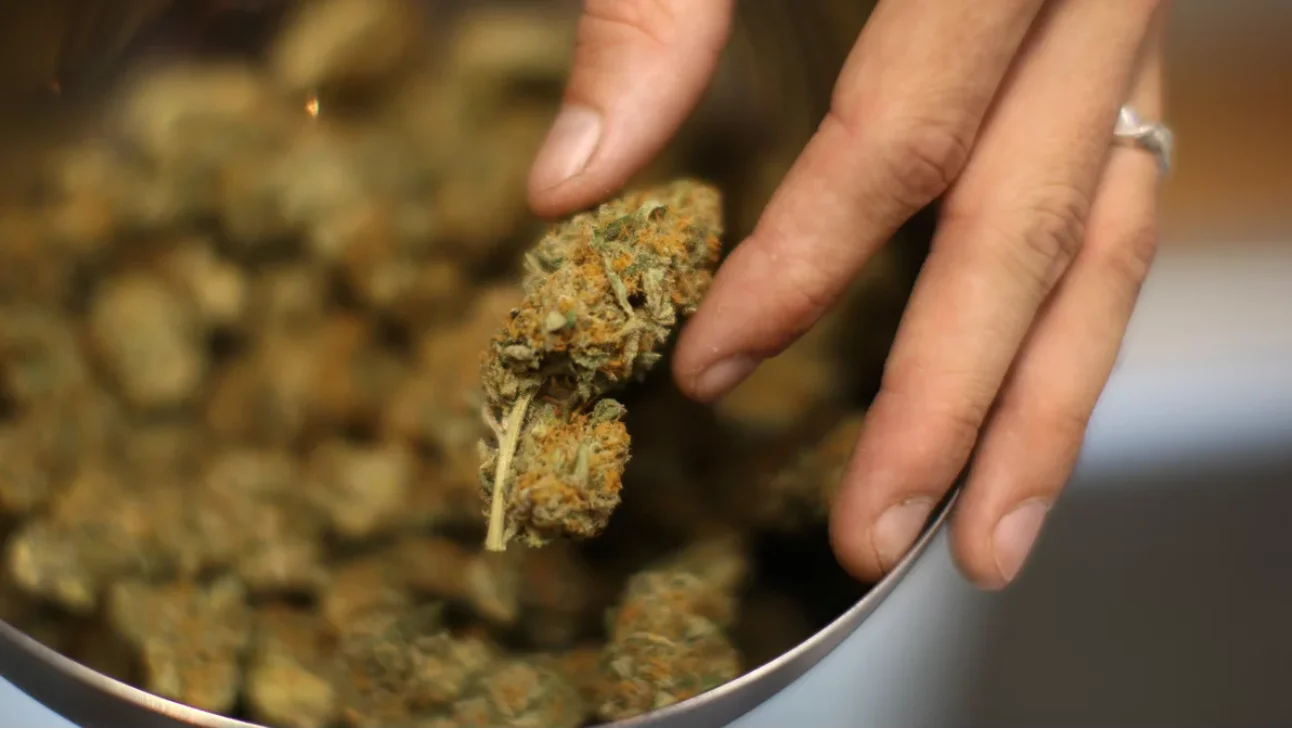In recent years, Canada has witnessed a profound shift in its approach to cannabis, marked by a growing acceptance and the landmark legalization of recreational marijuana. This seismic change in policy reflects evolving societal attitudes towards cannabis, recognizing its potential therapeutic benefits and acknowledging its widespread use. With the legalization of cannabis in October 2018, Canada became one of the few countries in the world to embrace a regulated framework for both medical and recreational cannabis consumption.

This transformation in legislation has not only reshaped the Canadian cannabis landscape but has also sparked a nationwide dialogue surrounding the plant’s medicinal properties and recreational value. As perceptions continue to evolve, there’s a burgeoning interest in exploring the diverse facets of cannabis consumption, particularly concerning its potential health benefits and recreational allure.
Against this backdrop, this article aims to delve into the topic of smoking weed and uncover the myriad benefits it offers to individuals. While smoking weed has long been associated with recreational use, there’s a growing body of evidence suggesting its therapeutic potential in managing various health conditions and enhancing overall well-being. By examining the multifaceted nature of cannabis consumption, we seek to provide insights into why an increasing number of individuals are turning to weed as a means of improving their quality of life.
Throughout this exploration, we’ll navigate through the historical context of cannabis use, shedding light on its ancient roots and tracing its journey to modern-day acceptance. Additionally, we’ll delve into the health benefits associated with smoking weed, ranging from pain relief and mental health management to its potential role in promoting relaxation and creativity.
Ultimately, this article aims to contribute to the ongoing conversation surrounding cannabis in Canada, offering readers a nuanced understanding of why smoking weed has become a topic of intrigue and exploration for many individuals across the country. As we embark on this journey, we invite readers to join us in uncovering the untapped potential of cannabis and the benefits it holds for those who choose to embrace it.

Historical Context of Cannabis Use
Cannabis has a rich and storied history that stretches back thousands of years, with evidence of its cultivation and use dating as far back as ancient civilizations. Throughout history, cannabis has played a multifaceted role in various cultures, serving purposes ranging from medicinal and recreational to spiritual and industrial.
Ancient civilizations such as the Chinese, Egyptians, and Indians were among the earliest to recognize the therapeutic properties of cannabis. In ancient China, for instance, cannabis was used for its medicinal properties to alleviate pain, treat various ailments, and promote overall well-being. Similarly, ancient Egyptians utilized cannabis for its potential healing properties and as an ingredient in religious rituals.
Moreover, cannabis has a long-standing tradition in spiritual and religious practices around the world. In India, cannabis, known as “ganja” or “bhang,” has been integral to religious ceremonies and cultural rituals for centuries, particularly within the context of Hinduism. It is often consumed as an offering to deities or as a means of achieving spiritual enlightenment.
The recreational use of cannabis also has a deep-rooted history, with evidence of its consumption for leisure and social purposes in cultures spanning the globe. From ancient Greece and Rome to pre-Columbian civilizations in the Americas, cannabis has been enjoyed for its psychoactive effects and its ability to induce relaxation and euphoria.
However, despite its widespread use and cultural significance throughout history, cannabis has also faced periods of stigmatization and prohibition. The early 20th century witnessed the rise of anti-cannabis sentiment, fueled by moral panic and racially motivated propaganda. In the United States, the Marihuana Tax Act of 1937 effectively criminalized cannabis at the federal level, marking the beginning of a decades-long era of prohibition.
The stigmatization of cannabis persisted throughout much of the 20th century, fueled by misinformation and fear-mongering campaigns. Cannabis was demonized as a dangerous drug with no legitimate medical use, leading to harsh penalties for possession and distribution. This stigmatization disproportionately affected marginalized communities, contributing to systemic injustices and perpetuating harmful stereotypes.
However, in recent decades, attitudes towards cannabis have undergone a dramatic shift, spurred by scientific research, changing social norms, and grassroots advocacy. The medicalization of cannabis in the late 20th century paved the way for its legalization for medicinal purposes in many jurisdictions, leading to a reassessment of its therapeutic potential.

Moreover, the legalization of recreational cannabis in various regions, including Canada, has further challenged the stigma surrounding cannabis and prompted a reevaluation of its role in society. As perceptions continue to evolve, there is a growing recognition of the complex history of cannabis and its enduring significance as a plant with diverse uses and cultural resonance.
Health Benefits of Smoking Weed
Smoking weed, or cannabis, has been associated with a range of health benefits, many of which stem from its active compounds known as cannabinoids. These cannabinoids interact with the body’s endocannabinoid system, which plays a crucial role in regulating various physiological functions. Among the notable health benefits of smoking weed are relief from chronic pain, management of mental health disorders, and aid in sleep disorders.
- Relief from Chronic Pain:
Chronic pain, whether caused by conditions like arthritis, multiple sclerosis, or other ailments, can significantly impact an individual’s quality of life. One of the most well-known health benefits of smoking weed is its ability to alleviate pain and provide relief for individuals suffering from chronic pain conditions. The cannabinoids found in cannabis, particularly tetrahydrocannabinol (THC) and cannabidiol (CBD), have been shown to have analgesic properties, effectively reducing pain sensation and inflammation. By activating cannabinoid receptors in the brain and body, cannabis can help modulate pain signals, offering relief to those in need. - Management of Mental Health Disorders:
Mental health disorders, including anxiety, depression, and post-traumatic stress disorder (PTSD), are pervasive conditions that affect millions of people worldwide. Smoking weed has emerged as a potential treatment option for managing symptoms associated with these disorders. Research suggests that certain cannabinoids, such as CBD, may have anxiolytic and antidepressant effects, helping to reduce feelings of anxiety and depression. Additionally, THC has been shown to modulate mood and emotional responses, offering relief for individuals struggling with PTSD and other trauma-related disorders. While further research is needed to fully understand the mechanisms underlying cannabis’ effects on mental health, anecdotal evidence and preliminary studies suggest its potential as a complementary therapy for mental health management. - Aid in Sleep Disorders:
Adequate sleep is essential for overall health and well-being, yet many individuals struggle with sleep disorders such as insomnia or restless sleep. Smoking weed has been reported to promote relaxation and aid in sleep for those experiencing sleep disturbances. Certain strains of cannabis, particularly those high in THC, have sedative properties that can induce feelings of drowsiness and facilitate sleep onset. Additionally, cannabinoids like CBD may help regulate sleep cycles and improve sleep quality by reducing anxiety and promoting relaxation. While cannabis can be an effective short-term solution for sleep disorders, it’s important to note that long-term use may lead to tolerance and dependence, and consulting a healthcare professional is advised for individuals with persistent sleep issues.

In conclusion, smoking weed offers a range of potential health benefits, including relief from chronic pain, management of mental health disorders, and aid in sleep disorders. While further research is needed to fully understand the therapeutic effects of cannabis and its long-term implications, its use as a complementary therapy for various health conditions continues to garner interest and support. As with any medical treatment, it’s essential to consult with a healthcare provider to determine the most appropriate approach for individual needs and circumstances.
Wellness and Lifestyle Benefits of Cannabis
Cannabis, often referred to as weed or marijuana, has garnered attention not only for its potential therapeutic properties but also for its wellness and lifestyle benefits. Beyond its medicinal applications, cannabis is increasingly recognized for its role in promoting relaxation, enhancing creativity, and fostering social connection.
- Stress Reduction:
In today’s fast-paced world, stress has become a prevalent issue affecting millions of individuals. Fortunately, cannabis offers a natural remedy for stress reduction and relaxation. The cannabinoids present in cannabis, particularly THC and CBD, interact with the body’s endocannabinoid system, which plays a crucial role in regulating stress responses. Studies have shown that cannabis can help lower cortisol levels, the hormone associated with stress, thereby promoting a sense of calm and relaxation. Many users report feeling more at ease and less anxious after consuming cannabis, making it a popular choice for unwinding after a long day or managing stress-inducing situations. Whether through smoking, vaping, or ingesting edibles, cannabis provides a welcomed reprieve from the pressures of daily life, allowing individuals to find moments of tranquility amidst the chaos. - Creativity Enhancement:
Anecdotal evidence and emerging research suggest that cannabis can stimulate creativity and enhance cognitive function for some individuals. Many artists, writers, and musicians have reported using cannabis as a tool to unlock their creative potential and tap into new ideas. While the exact mechanisms underlying cannabis’ effects on creativity are not fully understood, it is believed that cannabinoids like THC can alter neural pathways and increase cerebral blood flow, leading to enhanced divergent thinking and novel insights. Additionally, cannabis has been shown to lower inhibitions and quiet the inner critic, allowing individuals to explore unconventional ideas and perspectives more freely. Whether seeking inspiration for artistic endeavors or problem-solving in professional settings, cannabis can serve as a catalyst for innovation and imaginative thinking. - Social Bonding:
Cannabis has long been used as a social lubricant, fostering connection and relaxation among users. Whether shared among friends at a social gathering or passed around in intimate settings, cannabis has a unique ability to break down social barriers and facilitate meaningful interactions. The act of sharing a joint or passing around a vape pen can create a sense of camaraderie and solidarity, allowing individuals to bond over a shared experience. Moreover, cannabis can enhance sensory experiences, leading to heightened enjoyment of music, food, and conversation. For many, cannabis-infused social gatherings provide an opportunity to unwind, connect with others, and create lasting memories. Additionally, cannabis has been used in therapeutic settings to facilitate group therapy sessions and promote empathy and understanding among participants.
Cannabis offers a myriad of wellness and lifestyle benefits, including stress reduction, creativity enhancement, and social bonding. Whether used for relaxation after a long day, inspiration for creative pursuits, or fostering connections with others, cannabis plays a multifaceted role in enhancing overall well-being and quality of life. As attitudes towards cannabis continue to evolve, its potential as a tool for promoting wellness and enriching lifestyle experiences is increasingly being recognized and embraced.

Potential Risks and Precautions of Cannabis Use
While cannabis offers a range of potential benefits, it’s important to acknowledge that like any substance, it also carries certain risks. Understanding these risks and taking appropriate precautions is essential for ensuring safe and responsible cannabis consumption.
- Dependency and Impaired Cognitive Function:
One of the primary concerns associated with cannabis use is the potential for dependency, especially among individuals who use it regularly or in high doses. While cannabis dependence is less common than with substances like alcohol or opioids, it can still occur, particularly in individuals who use cannabis as a coping mechanism for stress or other issues. Chronic, heavy cannabis use has also been associated with cognitive impairments, such as memory and attention deficits, especially in adolescents and young adults whose brains are still developing. Additionally, long-term cannabis use may increase the risk of developing mental health issues, such as psychosis, particularly in individuals with a predisposition to such conditions. - Responsible Consumption and Awareness of Tolerance Levels:
To mitigate the risks associated with cannabis use, it’s crucial for individuals to consume cannabis responsibly and be aware of their tolerance levels. This includes starting with low doses and gradually increasing as needed, as well as avoiding excessive use or frequent use throughout the day. Understanding the potency of different cannabis products and strains is also important, as some may have higher levels of THC or other cannabinoids than others. Additionally, individuals should be mindful of their own tolerance and sensitivity to cannabis, as factors such as age, weight, metabolism, and overall health can affect how cannabis affects the body. - Consulting Healthcare Professionals:
Before incorporating cannabis into one’s wellness routine, especially for individuals with pre-existing health conditions or those taking medications, it’s crucial to consult healthcare professionals. This is particularly important for individuals with conditions such as cardiovascular disease, respiratory disorders, or mental health issues, as cannabis use may interact with certain medications or exacerbate underlying health issues. Healthcare professionals can provide personalized guidance and recommendations based on an individual’s medical history, current health status, and treatment plan. They can also help monitor for any potential adverse effects or interactions and make adjustments as needed to ensure optimal health and well-being.
While weed can offer therapeutic benefits, it’s essential to be aware of the potential risks and take precautions to minimize harm. By consuming cannabis responsibly, understanding individual tolerance levels, and consulting healthcare professionals when necessary, individuals can safely incorporate cannabis into their wellness routines and experience its benefits with confidence.
Legal Considerations in Canada
With the legalization of cannabis in Canada, there are important legal considerations that individuals must be aware of to ensure compliance with regulations and promote safe and responsible use.

First and foremost, it’s crucial to understand the legal status of cannabis in Canada. As of October 17, 2018, cannabis for recreational use became legal nationwide, following the passage of the Cannabis Act. This legislation allows adults aged 19 and older (or 18 in some provinces) to purchase, possess, and consume cannabis products from licensed retailers. It’s essential to emphasize the importance of purchasing cannabis from authorized sources, such as government-operated or private licensed retailers. Buying from licensed retailers ensures product quality, safety, and adherence to regulatory standards, while also supporting legal businesses and preventing the illicit market from thriving.
In addition to purchasing from licensed retailers, it’s crucial to understand the regulations surrounding cannabis consumption in public spaces. While cannabis consumption is legal in private residences and designated areas, it is prohibited in many public spaces, including parks, playgrounds, schools, and workplaces. Consumption in public spaces where smoking tobacco is prohibited is also generally prohibited. It’s important for individuals to familiarize themselves with local regulations and adhere to signage indicating where cannabis consumption is permitted or prohibited.
Furthermore, driving under the influence of cannabis is illegal and carries severe penalties under Canadian law. Just as with alcohol, cannabis can impair cognitive function, reaction times, and motor skills, increasing the risk of accidents and injuries on the road. Law enforcement agencies have implemented strict penalties for driving under the influence of cannabis, including fines, license suspensions, and criminal charges. It’s essential for individuals to refrain from driving or operating machinery while under the influence of cannabis and to plan alternative transportation methods when consuming cannabis.
In summary, understanding the legal considerations surrounding cannabis in Canada is essential for promoting safe and responsible use. This includes purchasing from licensed retailers, adhering to regulations regarding consumption in public spaces, and refraining from driving under the influence. By following these guidelines, individuals can enjoy the benefits of cannabis while minimizing potential risks and contributing to a safer community.
In conclusion, this article has explored the various benefits of smoking weed and its potential impact on overall well-being. We’ve discussed how cannabis can offer relief from chronic pain, manage mental health disorders, promote relaxation, enhance creativity, and foster social bonding. From its ancient roots to its modern-day acceptance, cannabis continues to intrigue and captivate individuals seeking alternative approaches to wellness.
It’s important for individuals to approach cannabis use with caution and responsibility. While it offers therapeutic benefits, there are also potential risks associated with its consumption, including dependency and impaired cognitive function. Therefore, it’s crucial for readers to educate themselves further on cannabis, consult healthcare professionals, and make informed decisions about their cannabis use. By being informed and proactive, individuals can maximize the benefits of cannabis while minimizing potential risks.



